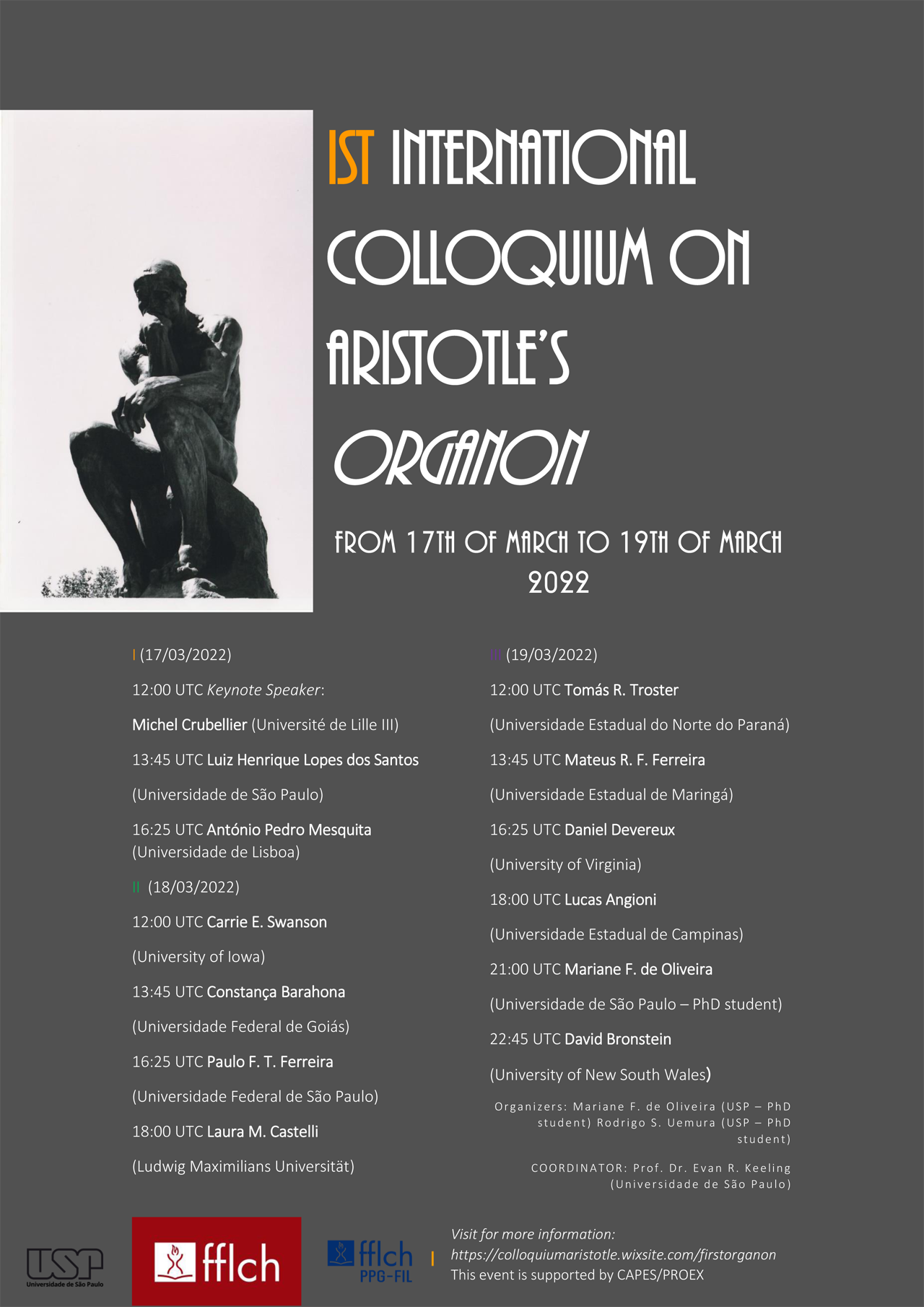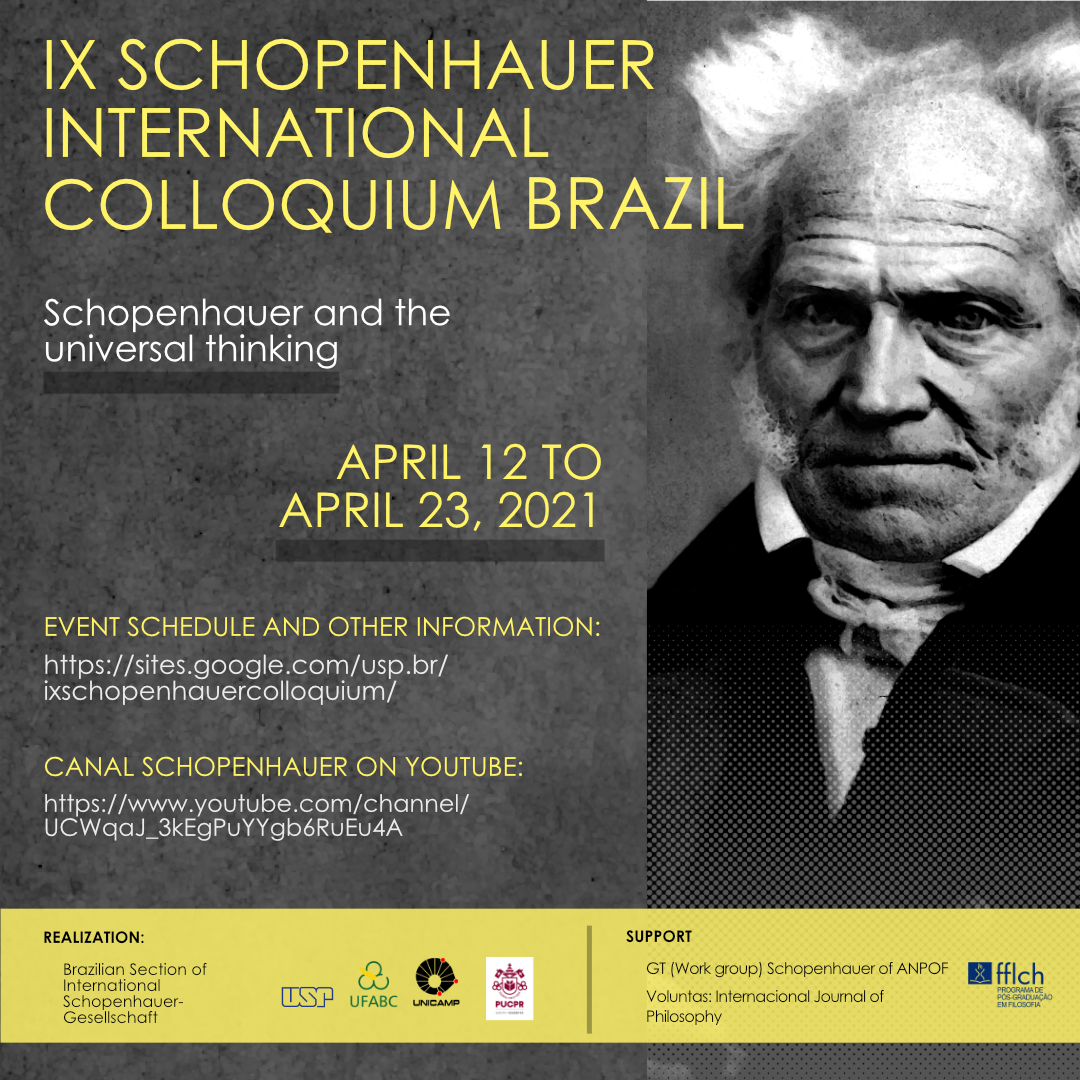1st INTERNATIONAL COLLOQUIUM ON ARISTOTLE'S ORGANON

As comunicações serão divulgadas proximamente.
Lucas Secanechia Pereira
Cléver Cardoso Teixeira de Oliveira
Douglas Rogério Anfra
Selected application to the Post-Doctoral Research Fellowships in Political Philosophy and History of Early Modern Philosophy - NOTICE No. 01/2021
The selected application to the Post-Doctoral Research Fellowships in Political Philosophy and History of Early Modern Philosophy - NOTICE No. 01/2021 is now available.
Post-Doctoral Research Fellowships in Political Philosophy and History of Early Modern Philosophy (NOTICE No. 01/2021)
- Applications list (May 5th, 2021)
- Definitive applications list(May 10th, 2021)
- Result (June 1st, 2021)
Department of Philosophy
University of São Paulo (Brazil)
The Research Project on Power, conflict and freedom: Spinoza[ ... ]
List of applications to the Post-Doctoral Research Fellowships - NOTICE No. 01/2021
Dear Sir or Madam,
the list of accepted and rejected applications to the Post-Doctoral Research Fellowships in Political Philosophy and History of Early Modern Philosophy - NOTICE No. 01/2021 is now available.
MARIA LUIZA IENNACO DE VASCONCELOS
Marina Mastrangelo Franconeti
IX Schopenhauer International Colloquium Brazil

EVENT SCHEDULE AND OTHER INFORMATION: https://sites.google.com/usp.br/ixcoloquioschopenhauer/

